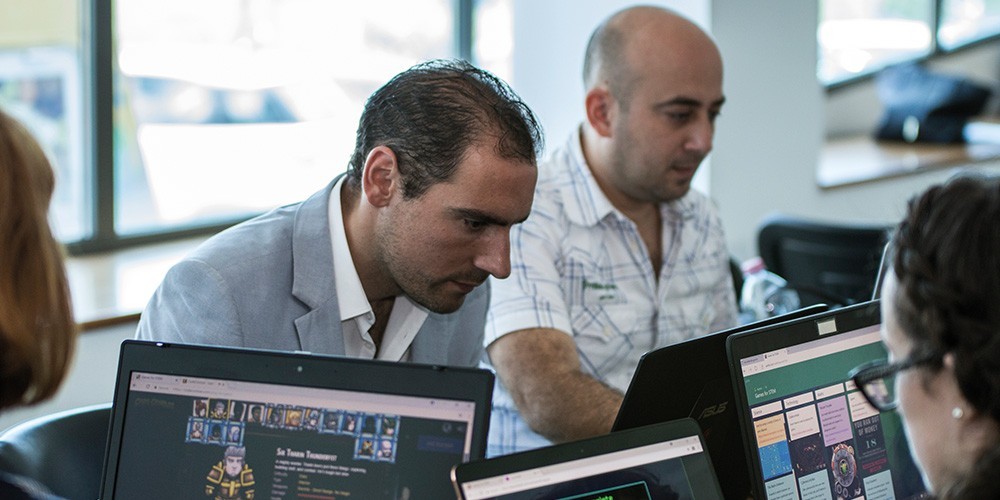Can digital games form part of the answer to dwindling attention spans in the classroom? Sara Cameron attended the ‘Playful Learning in STEM’ Seminar at the MITA data centre in June to hear entrepreneur Dr Lauri Järvilehto’s thoughts on the matter.
Our attention is constantly bombarded by the likes of mobile games, social media, Netflix, and Google. Adults are having a tough enough time focusing, let alone children sitting at their desks trying to wrap their heads around algebra and particle physics. Textbook lessons are fighting a losing battle with personalised entertainment. But there is light at the end of the tunnel. Dr Lauri Järvilehto, co-founder and chairman of Finnish startup Lighteneer, believes his team might have a solution. Games see kids experience progressive challenges. Children, as players, use diverse problem solving abilities, then receive instant feedback, satisfaction, and a sense of achievement. To ignite that same fire for games in learning, education needs to tap into that world and harness what makes it special. The feat, Järvilehto explains, is finding balance. We need games that contextualise mathematical or scientific concepts, allowing players to master these concepts, all while being engaged and having fun. A tall order.
Gamification has the potential to ease the introduction of subjects that are normally considered complex. It can make them more approachable, allowing students to grasp the basics before undertaking formal learning to further deepen their understanding.
‘Our thinking is that great learning games can work as the first spark for the love of learning in future generations. They can convey the awe and wonder you see shining in the eyes of our scientific experts as they tell us about the wonders of particle physics,’ says Järvilehto, speaking at a seminar called Playful Learning in STEM organised by the Science Centre (Ministry for Education and Employment) in collaboration with Malta Information Technology Agency and the Valletta 2018 Foundation.
But whilst digital learning is becoming all the craze, Järvilehto warns that educators should be wary of jumping on this trendy bandwagon. Technology is not a cure-all; there is no magic wand. Lighteneer aims to develop games that complement, rather than compete with, formal learning. He also believes that, even with an abundance of tech-based tools, an engaging teacher is still the best way to improve education and inspire the next generation. Games should be used as an initial spark to reel students in at the outset. ‘Perhaps kids will soon grow to think about particle physics and atoms as something as cool as collecting Pokémon.’ Game learning can be the key to unlocking students’ potential, offering a more accessible route to developing an understanding of complex topics.
To keep up with a fast-changing digital world, we must acknowledge its challenges and adapt. Games can’t solve this puzzle alone, but used in the right way, they can be a tremendously useful addition to a teacher’s toolbox.





Comments are closed for this article!